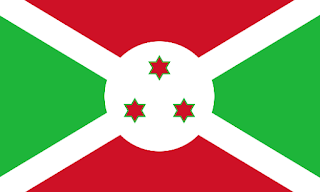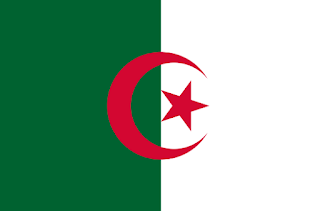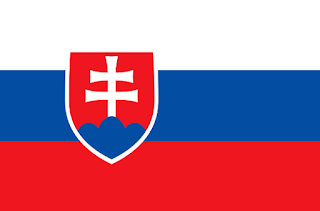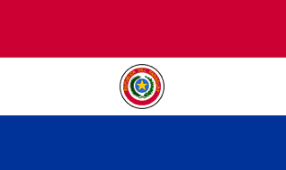FACTS ABOUT BURUNDI
AMAZING
FACTS ABOUT BURUNDI
1.
The official name of Burundi is the “Republic
of Burundi”.
2.
Bujumbura is the capital city of
Burundi.
3.
The natives of Burundi are called
Burundians.
4.
The total population of Burundi is 11,099,298.
5.
The Burundian franc is the official
currency of Burundi.
6.
Burundi shares a border with Rwanda, Tanzania and Congo.
7.
It is a landlocked country in the
African Great Lakes region of East Africa.
8.
The country’s motto, “Ubumwe, Ibikorwa,
Iterambere” means “Unity, Work, Progress” in Kirundi.
9.
Burundi was ranked as the world’s least
happy nation in the 2016 World Happiness Report.
10.
HIV/AIDS is also a major threat to the
population of the country.
11.
Burundi won a gold medal in 1996 for the
first time in Olympic history. In doing so, it became the poorest country ever
to win an Olympic gold medal.
12.
Group jogging is banned in Burundi. In
2014, the country’s president banned the activity, citing the reason that such
walks can help people plan subversive (anti-government) activities.
13.
Due to farming and overgrazing,
deforestation and soil erosion are becoming concerns for the population of the
country.
14.
The first election in the country took
place on September 8, 1961.
15.
Before independence, the country was
named Ruanda-Urundi.
16.
The first Prime Minister, Louis
Rwagasore, was assassinated a few weeks after his election.
17.
Melchior Ndadaye became the nation’s
first Hutu ruler when he was elected as the president in 1993.
18.
The country’s capital—Bujumbara—has the
largest port.
19.
Gitega is the second-largest city in the
country.
20.
There are only two coffee-processing
plants in Burundi. One is located in the capital, and the other is in Gitega.
21.
A majority of the population of Burundi
lives in villages that are scattered throughout the highlands.
22.
Protein and fat intake in the population
of Burundi is very limited. As a result of it, a disease known as kwashiorkor
is common. Learn more about kwashiorkor.
23.
People in the region mainly eat diets
consisting of carbohydrates, vitamins, and minerals.
24.
Meat accounts for 2% or less of
the average food intake.
25.
Beer, which is an important part of
social interactions, is drunk through straws.
26.
Upon the death of a cow, its meat is
eaten and horns are planted in the soil near the house. People in Burundi
believe that this brings them good luck.
27.
The country imports twice as much as it
exports.
28.
Ninety percent of the population of
Burundi is employed in agriculture.
29.
Burundi is a country heavily affected by
sex trafficking and forced child labor.
30.
Burundi lies on a “rolling” plateau in
the center of Africa. These plateaus are at different elevations: a flat area
at 1500m rises to 2000m, and then descends to another plateau back at 1500m,
creating an undulating (rolling) landscape. In Africa, these features are
called rolling plateaus.
31.
Burundians often have to deal with
hunger, corruption, weak infrastructure and poor access to health and education
services.
32.
Traditionally, houses were built with
mud and grass in the country. Nowadays, tin is used for roofing, as there is a
shortage of grass and leaves.
33.
The natives of Burundi are called “Burundians.”
34.
Burundi became independent on July 1,
1962.
35.
“Mount Heha”
is the highest point in Burundi. It is 2684 m, or 8,806 feet high.
36.
Football (soccer) is the national sport
of Burundi.
37.
The country is among the most densely
populated countries in Africa.
38.
The country has two official languages –
French and Kirundi.
39.
People belonging to both Hutu and Tutsi
ethnic groups can speak Kirundi.
40.
There were a total of 144,550 internet
users in the country in 2014.
41.
There are seven airports and 12,322 km
of total railway in the country.
42.
The official currency of Burundi—the
Burundi Franc—was first issued in 1963.
43.
Burundi is also a member of the United
Nations.
44.
It is a landlocked country and is about
the size of Belgium.
45.
The country is also one of the few
republics in Africa to have a female prime minister.
46.
In the past decades, the country’s
rainforest housed one of the world’s biggest crocodiles.
47.
The country receives an average rainfall
of 848 mm every year. It experiences its driest weather in July and wettest
weather in April.
48.
An estimated 200,000 people were killed
during the 12 years of the civil war in Burundi.
49.
The civil war started as a conflict
between the Hutu and Tutsi ethnic groups of Burundi after the assassination of
the country’s president–Melchior Ndadaye–in 1993.
50.
The war caused severe economic
disruption and dislocation. During the period of dislocation, affected people
became dependent on international humanitarian assistance.
51.
Because of the ongoing civil war,
hundreds of thousands of Burundians fled to neighboring countries.
52.
Burundi Exports:
coffee, tea, sugar, cotton and animal hides.
53.
Burundi Imports:
capital goods, petroleum products and foodstuffs.
54.
The internet country code for Burundi is
.bi.




Comments
Post a Comment